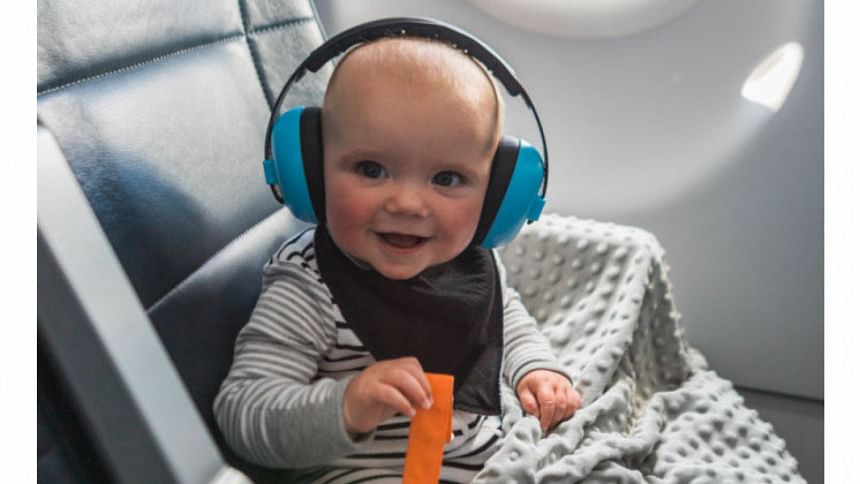Why babies cry on flights and how you can help

Few things are as harrowing as flying with an unhappy baby.
The sound of the wailing makes all on board uncomfortable and is a constant source of embarrassment for the parents of the tiny but outrageously loud passenger.
The parents die a thousand deaths; passengers in nearby seats curse their luck and one would imagine even the flight attendants become flustered, beneath their smiling exteriors.
There are many reasons that a baby cries on an airplane. They can have feelings of discomfort, exhaustion, hunger, loneliness, boredom, anger, pain and general unrest.
But one of the main reasons is popping ear.
According to The Health Journal, the most common reason for their discomfort on flights is because cabin pressure presses down on their sensitive ears. Babies' ears are more sensitive than adults' ears, and they cannot equalise the air pressure in their ears as well as adults can.
There is a fundamental anatomical difference between adults' ears and babies' ears, with the infantile Eustachian tube playing a key role.
This tube is a canal that connects the middle ear to the nasopharynx, or upper throat and back region of the nasal cavity. It regulates the pressure within the middle ear, helping to equalise the pressure from outside.
In adults, this tube is usually closed most of the time, only opening for chewing, swallowing, and yawning. Air can pass between the middle ear and the nasopharynx thanks to these processes.
If you've ever been told that yawning on airplanes can help relieve air pressure, this is a big reason why that happens, according to Aero Corner, the website which talks about aviation issues in a way that is easy to digest for the general public.
The implications here are clear. A baby's Eustachian tube is not as strong or well-developed, and so it cannot perform this equalising process well, thus making it easier for the external pressure felt in a pressurized plane cabin to push down and hurt their ears, it said.
Do headphones help babies on planes? Yes. babies develop their hearing from 0-2 years old, so it helps to using baby headphones or small earplugs when traveling on an airplane, according to Aero Corner.
To calm babies, parents should take a bottle or pacifier or breastfeed.
Also, airplane cabin noise levels are loud, especially during takeoff. Parents can also consider using cotton balls to limit a baby's exposure to this noise. This may help make it easier for the babies to sleep.
The good news is that the ear pain is only temporary -- it won't cause long-lasting problems for babies.
It will ease within a few minutes as the Eustachian tubes open to let the air pressure equalise on both sides of the eardrums.

 For all latest news, follow The Daily Star's Google News channel.
For all latest news, follow The Daily Star's Google News channel. 



Comments